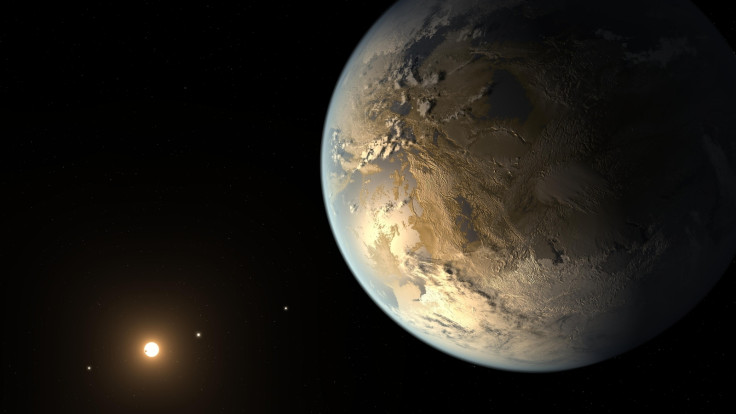Alien life on Mars and Jupiter's moon Europa a certainty, claims space scientist
If life exists on Europa, it is could possibly be "higher forms of life."
Search for alien life beyond earth continues to be one of the most intriguing research subjects for space scientists. Even though there is no certain answer out there about the existence of extra-terrestrial life on Mars and other planets, it is now claimed to be a "racing certainty."
According to Daily Galaxy, a leading space scientist suggests that there is a great possibility of the existence of alien life beyond Earth. She insists that the bottom of Europa's ocean is one of the most habitable places on the planet, just like Earth. And it could be home to higher forms of life such as octopus-like creatures.
"When it comes to the prospects of life beyond Earth, it's almost a racing certainty that there's life beneath the ice on Europa," Monica Grady, a professor of planetary and space science and the newest chancellor at Liverpool Hope University in the UK, said during her speech at the University.
"But I think we've got a better chance of having slightly higher forms of life on Europa, perhaps similar to the intelligence of an octopus," she added.
Europa is one of the 79 moons of Jupiter. It is said to be the sixth-closest moon to the planet and sixth largest in the solar system. It was discovered centuries ago by Galileo Galilei in 1610. Made of silicate rock and water-ice crust, it is slightly smaller than Earth's moon. Europa is covered by a layer of ice that runs 15 miles deep.
The reason why this place is considered hospitable for life because the ice provides a protective layer against solar radiation. Meanwhile, the scientist also believes that life could exist on Mars.
"Elsewhere, if there's going to be life on Mars, it's going to be under the surface of the planet... There you're protected from solar radiation. And that means there's the possibility of ice remaining in the pores of the rocks, which could act as a source of water," Grady said.
At the same time, she suggests that if there is life on Mars it would be very small in the form of bacteria-like organisms. Meanwhile, Grady suggests that if life exists beyond earth it is going to be made up of "same elements."
"Whether we will ever be able to contact extra-terrestrial life is anyone's guess, purely because the distances are just too huge. And as for so-called alien 'signals' received from space, there's been nothing real or credible, I'm afraid," she added.

Apart from the newly appointed chancellor at the UK's Liverpool University, Grady is a resident at the Open University. Formerly, she worked with the European Space Agency.
© Copyright IBTimes 2025. All rights reserved.





















